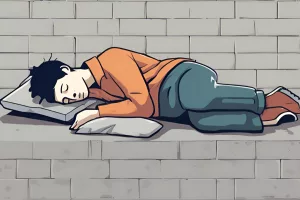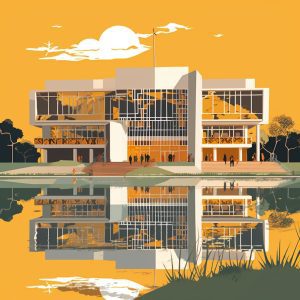STADIO is set to open a new campus in Durbanville, Cape Town, in 2025, marking an exciting step forward for higher education in South Africa. With plans to enroll 56,000 students by 2026, this campus aims to create a vibrant and supportive learning community. It will feature modern facilities like advanced labs and lecture halls, all designed to help students succeed. This development not only boosts education but also promises job opportunities and economic growth for the local area, making it a beacon of hope and progress for many.
The Department of Higher Education and Training (DHET) in South Africa has demonstrated financial responsibility by returning R580 million to the National Treasury due to the impact of the Covid pandemic, while still achieving 99% of its performance objectives. Under the leadership of Minister Nobuhle Nkabane, the DHET is committed to developing a qualified workforce that contributes to economic expansion through its higher learning institutions. The DHET’s initiatives include resolving legal litigation, prioritizing response to genderbased violence, investing in research and development, and expanding the postsecondary education and training system.
The Unexpected Storm Swirling Around South Africa’s National Student Financial Aid Scheme
South Africa’s National Student Financial Aid Scheme (NSFAS) is currently embroiled in a legal battle over a contentious contract with eZaga, Coinvest Africa, Tenet Technology, and Norraco Corporation, which was aimed at disbursing payments to university and TVET college students. The contract’s termination was met with an urgent court application from eZaga, which secured a favorable ruling on July 15th due to irregularities in the tender award process. The situation remains complex, impacting the students who depend on the aid.
Stellenbosch University in South Africa has closed down its Wilgenhof residence due to a hidden initiation custom that contributed to a culture of mistreatment and hazing of freshmen. The university conducted a comprehensive investigation, supported by evidence from auditing the rooms, resulting in a report on the serious circumstances in Wilgenhof. The closure of Wilgenhof highlights the wider issue of hazing and initiation practices that afflict numerous higher learning institutions and emphasizes the need for change.
A housing crisis has hit Cape Peninsula University, leaving 100 students to live in a multipurpose hall due to a shortage of accommodation. This highlights the broader issue of housing affordability and accessibility at universities, where new policies inadvertently create disparity among students. The situation emphasizes the need for enhanced communication and empathy within universities and comprehensive systemic changes to address student housing issues. Students are struggling to cope with unhygienic conditions, and there is a pressing need for proactive steps to address the crisis.
The rise in applications reflects a growing commitment to higher education in the Western Cape region of South Africa, where there are four major universities: the University of Cape Town, the University of the Western Cape, Stellenbosch University, and the Cape Peninsula University of Technology. These universities are attracting more applicants each year, with Stellenbosch University receiving a staggering 88,085 applications in 2024 alone. Each university has its own strengths and focuses on providing quality education while prioritizing student welfare.
The University of Fort Hare (UFH) is following a global trend by investing in their sports programs, with a goal to reclaim its position in the South African university football’s premier league by 2025. UFH’s skilled goalkeeper, Nkosiyethu Ngobe, represents the potential for a return to prominence in college football. Cyprus and the European Union also prioritize sports as a means to enhance social integration, education, and development of the youth. UFH’s football aspirations are part of a larger movement where universities prioritize sports as a symbol of athletic prowess and integration of students into diverse cultural and social systems.
In South Africa, genderbased violence and femicide are pervasive issues that continue to plague university campuses across the nation. The brutal murder of Uyinene Mrwetyana, a young student at the University of Cape Town, serves as a stark reminder of the deeply entrenched issues that need to be addressed urgently.
On June 23rd, Dr. Blade Nzimande, the Minister of Higher Education, Science, and Innovation, visited the University of Fort Hare in a series of followup engagements with the University Council and various stakeholders. ### A Rich History
Supported Employment Enterprises (SEE) is committed to creating job opportunities for Persons with Disabilities (PwD) by developing partnerships with various economic stakeholders to facilitate their transition from education to the labor market. Vocational training is emphasized by SEE to broaden future opportunities for PwDs who are not academically inclined.










